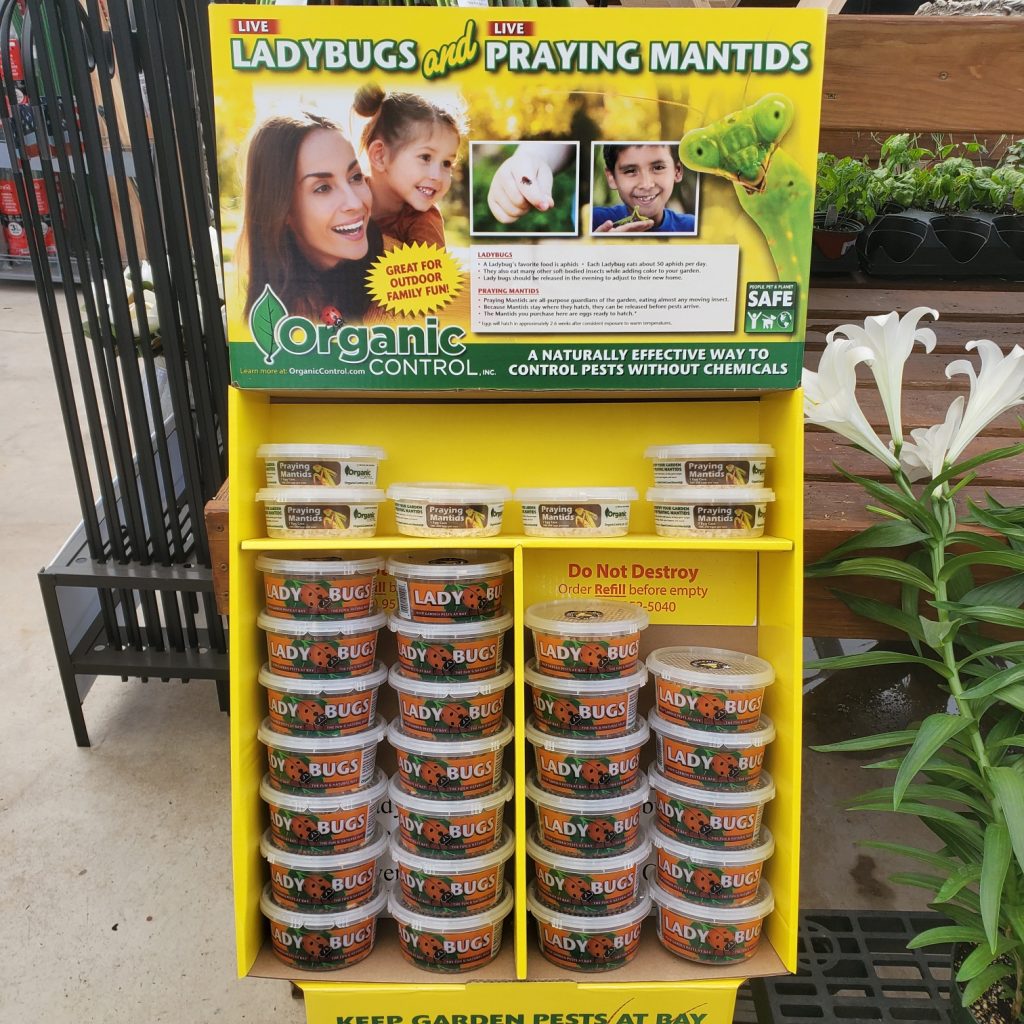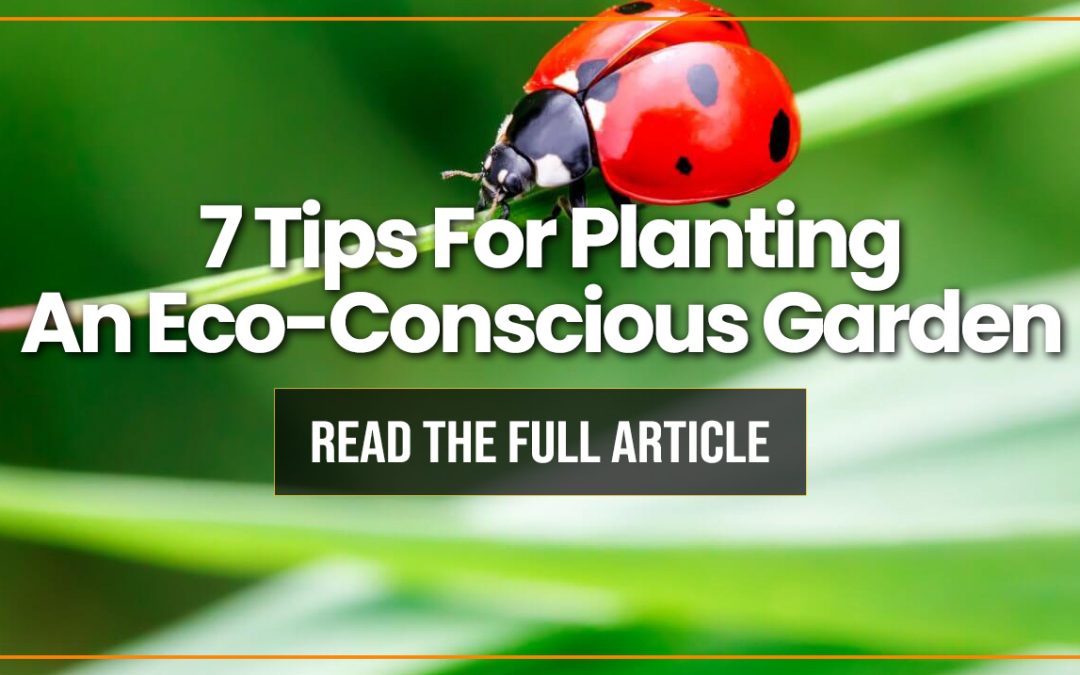As a society, with our need to be sustainable—eco-conscious gardening is more important than ever. You are personally responsible for improving the quality of life by planting an eco-conscious garden. These are actions that promote protecting our ecosystem and preserving precious natural resources for future generations.
If you want to make a positive impact on the environment and the world you live in, but you don’t know where to start, we have a few ideas to get you started with eco-conscious gardening. Check them out!
1. Plant Native
A direct impact of planting native plants, is that they have the ability to transform your local ecosystem. Native plants provide endless benefits to people and wildlife! Let’s look at some reasons why.
Native plants are plants that are indigenous to a given region and have been naturally growing there for thousands of years. Because these species have been thriving in a certain zone for so long, they bring with them a host of beneficial pollinators, and wildlife. These organisms work together and create a balanced ecosystem.
Beyond supporting important local wildlife, native plants also require less water and fertilizer to sustain life. In turn, this helps gardeners and landscapers to conserve water. This also creates less of a need to use harmful chemicals that negatively impact the environment.
Here at Holly Days, we pride ourselves in offering a wide range of eastern PA native trees, shrubs, and perennials at our seven acre nursery and garden center! Choose native plants today and make a difference. Included in our absolutely enormous selection of native plants is, echinacea, butterfly weed, mountain laurel, itea, eastern red bud, flowering dogwood, white oak, eastern hemlock, red maple, & so many more. Our garden center experts are always happy to help you find the plants you are looking for or make recommendations!
2. Grow For The Pollinators
Plant with pollinators in mind. Not to be overly-dramatic… but without pollinators, the human race and all of Earth’s terrestrial ecosystems would seize to exist.
Pollinators such as bumble bees, moths, bats, and butterflies are essential factors in plant reproduction. According to the United States Department of Agriculture, in carrying pollen from one plant to another, the actions of these hard-working creatures account for about 75% of the world’s flowering plants and about 35% of the world’s food crops. This is amazing. Let’s make sure we are all doing our due diligence in giving back to our gardens with pollinator friendly plants. We have a huge selection of these amazing annuals and perennials right here at Holly Days!
3. Protecting Beneficial Insects
When it comes to eco-conscious gardening, it’s important to note that not all bugs are bad! There are plenty of beneficial insects that work to keep pests at bay and maintain the health of your garden and your home property!
Insects like ladybugs, praying mantis, and beetles are great organic, non-chemical options for treating pests that will kill your plants such as white flies, aphids, slugs, mealybugs, and spider mites! In our garden center we are actually now carrying live praying mantis and ladybugs for organic pest control. You can now directly add these famous beneficial insects into your home garden! Kids will love it. 😃

4. Plant Trees For Shade
Planting shade trees that provide a significant level of shade to your yard assist in creating and eco-conscious garden. In doing this shaded garden area will work to conserve water throughout the landscape while keeping your plants cool and healthy in the warmer months. This is especially beneficial for creatures who are looking to stay cool. Earthworms enjoy nothing more than some shady, cool soil. Our garden center experts would be happy to walk you through some of the great shade tree options we offer, including, Zelkovas, Maples, Oaks, Sycamores, and more.
5. Create A Xeriscape
This is a newer landscape concept that had developed some popularity in recent years for eco-conscious gardening, especially in drier climates. Xeriscaping is the practice of removing all grass, and famously thirsty plans, and in place opting for more drought tolerant plants. This will require little to no water outside of natural precipitation. Certain local areas would be more suited to this than others. Speak with our garden center staff if you are interested in learning more about this gardening style. To learn more about xeriscaping and the costs and materials associated, please click this link.
6. Plant A Rain Garden
Making a rain garden has actually become a very popular eco-conscious practice. This gardening style may only be suited to certain properties, as it does require a depression in the landscape. This will ultimately collect rainwater runoff and absorb it. Essentially, this is the type of landscape that will act as a natural sponge for your yard. By doing this you will also look to retain many pollutants that are carried in rainwater runoff.
7. Go Organic
Going totally organic, means zero harmful pesticides and chemicals are used on your plants! While at times certain chemicals can feel necessary in the garden, there are a variety of organic options that can have the same positive effect in your plantings. Our garden center experts are always happy to make some wonderful eco-friendly recommendations for organic options. We even recommend using triple ground mulch, which is the most eco-friendly garden dressing you can use. You can buy all mulch and bulk materials directly online for delivery!
Conclusion
These are just some of the simple ways that you can implement more eco-conscious gardening practices. By putting some or all of these practices into our landscapes we can make a difference together.
—We appreciate reference from: https://gardengoodsdirect.com/blogs/news/7-tips-for-planting-an-eco-conscious-garden—
